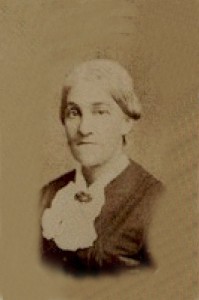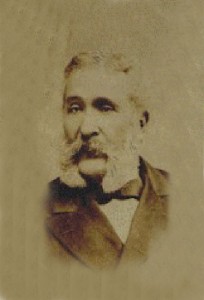From 1800 to 1860, Virginia had more slaves than any other state. African enslavement formed the very basis of Virginia’s successful plantation based economy of raising tobacco, and the more infamous cultivation and selling of slaves to states further south for use on rice and cotton plantations.
But during the late summer of 1831, Virginia’s notion of idyllic ante-bellum life came to a bloody halt with the Nat Turner Slave Rebellion. Nat Turner and his collaborators would start a slave uprising in Southampton Virginia that contributed to more deaths than any other slave revolt in United States’ history. Turner’s revolt prompted a dramatic debate in the Virginia General Assembly of 1832 that lead to the enactment of a series of laws to limit the activities of African Americans, both free and enslaved. These laws, historically referred to as “Negro Codes,” included slaves and even free persons of color being highly regulated by an onerous pass system. The teaching of slaves to read or write was prohibited, along with the assembly of slaves and free persons of color for religious purposes. The most drastic of measures required that all emancipated slaves and free persons of color must leave the Commonwealth of Virginia within one year of their freedom. The Code of Virginia laws specifically stating, “No Negro, emancipated since the first day of May 1806, or hereafter, or claiming his right to freedom under a Negro so emancipated, shall, after being 21 years of age, remain in this state more than one year without lawful permission.”
At this same time, Slowey and Catherine Hays of Richmond were caring for a young boy of nine name Richard. The Hays sisters were the wealthy daughters of Moses Michael Hays, a Jewish merchant and banker from Colonial Boston and Newport, Rhode Island. The boy was the offspring of a free woman of color named Nelly Forrester and the Hays sisters’ young nephew, Gustavus Myers. Even though the boy was born free, as a person of mixed heritage he would be required to register and possibly be forced to leave his home and state at the age of twenty-one. On the seventeenth day of December in 1832, Slowey Hays drafted her last will and testament that would become at the time, one of the largest estates left by a Virginia woman with a value of $120,000. What is remarkable about Slowey Hay’s will is that it was written in her own hand with very direct instructions on what would become of her estate:
Richard Gustavus Forrester
“This is my last will, wishes and directions within the terms of law that at my death, my sister Catherine Hays, daughter of Moses M and Rachel Hays shall come into possession of all I have in this world, namely stocks of every description, cash, plates, books, household furniture, and fixtures of every kind. I again repeat, all and everything my sister Catherine must take as her own without reserve as I request of her, and if she should die when I do, I desire two thousand dollars may be presented to Excy Gill our faithful friend and servant.
And that Richard, the son of Nelly may be purchased and his freedom given him, if his owner or owners consent with, fifty dollars yearly during his life. I desire to be conveyed to Newport, and to be placed in the family enclosure with a plain marble monument erected in my memory. In perfect health of body and mind I sign this paper.”
Slowey Hays died on October 28, 1836 and her will was witnessed by her brother in law, Moses Mears Myers and her nephew Gustavus Myers of Richmond. Gustavus was one of Richmond’s most promising young attorneys who would go on to serve as President of the Richmond city council and as Special Counsel to Great Britain for the Confederate States of America.
Slowey’s sister, Catherine Hays would die in 1854 and as a part of her will, would also leave specific instructions and money for Excy Gill and Richard that included:
“….. I give and bequest to my faithful friend Excy Gill, the sum of six thousand dollars, and I request that every member of my family to treat her with the kindness which her long services and great friendship have provided to me. …..I desire my Executor to purchase the freedom of Richard, a slave, the son of Nelly Forrester, when he shall obtained the age of twenty one years , if his owner or owners consent, he shall receive his freedom under the terms of the laws of Virginia then in force and for that purpose. I hereby direct that the sum of one thousand dollars be appropriated accordingly by my Executor and that said sum of one thousand dollars shall be more than sufficient for Richard…..”

Narcissa Forrester
Excy Gill, an Irish woman born in 1785 would spend her entire life as servant and friend to Slowey and Catherine Hays. And on the nineteenth of June in 1855, Excy Gill executes a will that leaves her entire estate to the children of Richard Forrester stating:
“I, Excy Gill of the City of Richmond in the State of Virginia, do make, publish and declare the following as for my last will and testament, to give and bequest my slave, Narcissa, the wife of Richard Forrester, to misses Catherine Myers, Harriet Myers, and Julia Myers in absolute property knowing that she will be well and kindly taken care of and I emancipate and free the children of the said Narcissa being Lucretia, Wills, Richard, James, William, Mary, Alexander, Charles and Ellen, all of which children are now of tender age and for the purpose of furnishing them a home, until they shall obtain the age at which by the law they must leave the State of Virginia, until then they be lawfully permitted to remain therein, I give and direct to them the house and lot belonging to me in the City of Richmond located on College Street. All the rest of my estate of every description, I give and bequest to the said children of my said slave Narcissa, to be equally divided between them, share and share alike.”

Child – Richard Gill Forrester 1850
Through love, caring, ingenuity, and some legal slight-of-hand displayed in the wills of Catherine, Slowey and Excy; Richard and Narcissa Forrester, two free-born persons of color would have the opportunity to not only remain in their home city and state, but be given the substantial financial resources to become one of 19th century Richmond’s most prominent families of color. As an adult, Richard Gustavus Forrester would become the first man of color to serve on the Richmond city council and school board leading the efforts to promote equal opportunity and access for all newly emancipated African Americans immediately after the Civil War.
Richard Forrester and his family, despite being born into and living within one of the most difficult times and settings for persons of African heritage, prospered and thrived because the two Jewish sisters and their Irish friend found that when there is a WILL, there is a way – for freedom and prosperity.
- When There is a Will, There is a Way - April 5, 2014

Thank you for sharing. It is nice to know about good people doing nice things.